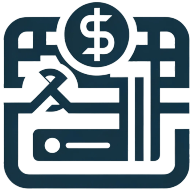8 Initiatives Promoting Financial Wellness Through Payroll Programs
Imagine a workplace where employees are empowered with the knowledge to manage their finances effectively. This Q&A article explores various strategies organizations employ to promote financial wellness and education through payroll communication or programs. The discussion begins with offering financial literacy workshops and wraps up with establishing emergency savings funds, covering a total of eight innovative insights. Dive into these proven initiatives to discover how businesses are making a difference in their employees' financial lives.
- Offer Financial Literacy Workshops
- Introduce Financial Wellness Program
- Implement Personalized Financial Education
- Utilize Automatic Savings Programs
- Provide On-Demand Pay Options
- Integrate Financial Literacy Tools
- Facilitate Payroll-Deducted Loan Repayments
- Establish Emergency Savings Funds
Offer Financial Literacy Workshops
Our organization promotes financial wellness by offering employees access to a financial-literacy and planning program through our payroll provider. One specific initiative we've implemented is a series of workshops and one-on-one coaching sessions on budgeting, debt management, and retirement planning. These resources are communicated through payroll emails, ensuring that employees receive reminders about upcoming sessions and access to online financial tools.
For example, we partnered with a financial advisor to provide monthly workshops focused on different financial topics, like managing student loans or optimizing 401(k) contributions. Employees can sign up through a link in their payroll portal, making it convenient and accessible. Additionally, we offer a budgeting tool in the payroll dashboard where employees can set financial goals and track their progress.
This initiative has been well-received, as it empowers employees to make informed financial decisions and reduces stress related to personal finances. By integrating financial education with our payroll system, we make it easy for employees to engage with these resources, enhancing their financial wellness and overall job satisfaction.

Introduce Financial Wellness Program
One specific initiative we introduced is a financial wellness program that includes educational workshops and accessible resources.
Each month, alongside the payroll information, employees receive updates about upcoming financial wellness workshops. These workshops cover various topics, such as budgeting, retirement planning, and managing debt. We invite financial experts to lead these sessions, allowing employees to ask questions and gain insights tailored to their needs.
Additionally, we provide a digital resource library that employees can access at any time. This library includes articles, videos, and tools that help them better understand their financial options. Employees appreciate this flexibility, as it allows them to learn at their own pace while accessing information relevant to their financial goals.

Implement Personalized Financial Education
At Ponce Tree Services, promoting financial wellness and education for our employees is an important part of creating a supportive workplace. One initiative we have implemented is a personalized financial-education program, where employees receive tailored guidance on managing their earnings and planning for the future. This includes quarterly workshops with a financial advisor who educates our team on budgeting, saving, and even homeownership, as topics that are directly relevant to their personal lives. We have also streamlined our payroll communication to include easy-to-understand breakdowns of earnings, deductions, and retirement contributions, empowering employees to make informed financial decisions. Having grown up learning the value of hard work and responsibility from an early age, I have made sure that these resources give our team the tools they need to achieve financial stability and growth.
My years of experience as a certified arborist and business owner have taught me that the well-being of my team goes beyond just their paycheck. By offering these resources, we have not only improved employee satisfaction but also increased retention and productivity. As someone who worked alongside my father from a young age, I understand the importance of financial security, and that perspective has shaped our approach to employee support. Our employees appreciate the hands-on, practical advice they receive, and we have seen a positive shift in their confidence when it comes to managing their finances.

Utilize Automatic Savings Programs
Automatic savings programs play a vital role in ensuring regular contributions towards savings without requiring constant individual oversight. Such programs minimize the effort and time needed to keep track of savings goals, making it easier for employees to build a financial safety net. Moreover, the consistency in savings helps avoid the common pitfalls of irregular saving habits.
This stability is beneficial for long-term financial planning and promotes a disciplined approach to personal finances. Take advantage of automatic savings options to secure your financial future.
Provide On-Demand Pay Options
On-demand pay options provide significant benefits by allowing employees access to their earned wages before the traditional payday. This flexibility is particularly helpful during emergencies or unexpected expenses, as it reduces the stress of waiting for a paycheck. By facilitating timely access to funds, these programs can help avoid the financial strain and potential for payday loan dependency.
This solution can also lead to improved job satisfaction and reduced financial-related absenteeism. Consider offering on-demand pay options to enhance financial flexibility.
Integrate Financial Literacy Tools
Financial literacy tools integrated into payroll systems are essential for fostering financial knowledge among employees. These tools provide valuable insights and education on managing personal finances, budgeting, and investing. Better financial understanding can empower employees to make informed decisions, leading to improved financial stability.
By using these resources, individuals can develop skills that help avoid common financial mistakes and achieve long-term financial goals. Encourage the use of financial literacy tools for a well-informed workforce.
Facilitate Payroll-Deducted Loan Repayments
Payroll-deducted loan repayments directly address the issue of debt management by facilitating the repayment process through payroll deductions. This system ensures timely payments, which helps in reducing interest rates and preventing default. Additionally, it aids in improving credit scores, which is crucial for future financial opportunities.
This method of loan repayment reduces the burden of tracking multiple due dates and payments. Implement payroll-deducted loan repayments to help employees manage debt more effectively.
Establish Emergency Savings Funds
Employer-sponsored emergency savings funds serve as an essential safety net for employees facing unexpected financial hardships. These funds provide quick access to financial support during urgent situations, which can alleviate stress and prevent further financial complications. Having such a fund in place can lead to increased employee loyalty and stability, as they feel more secure and supported by their employer.
Moreover, it helps in maintaining productivity by reducing financial-related distractions. Establish emergency savings funds to support your employees in times of need.

